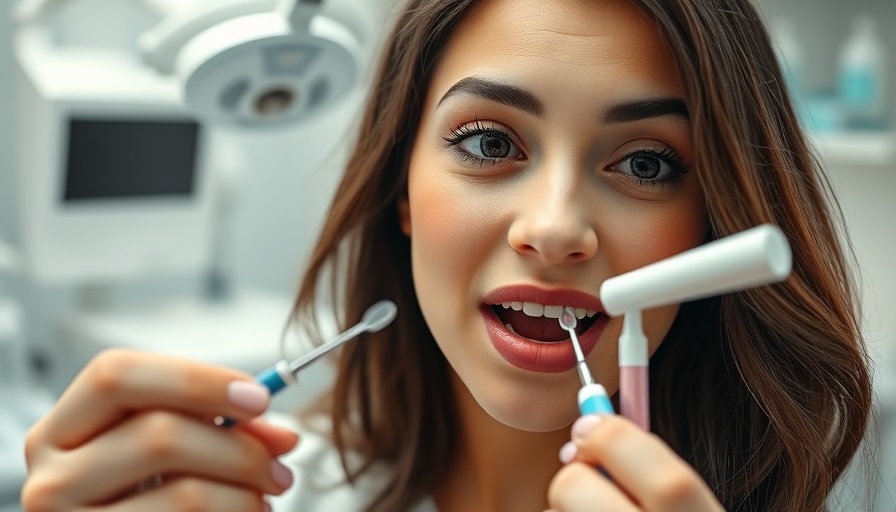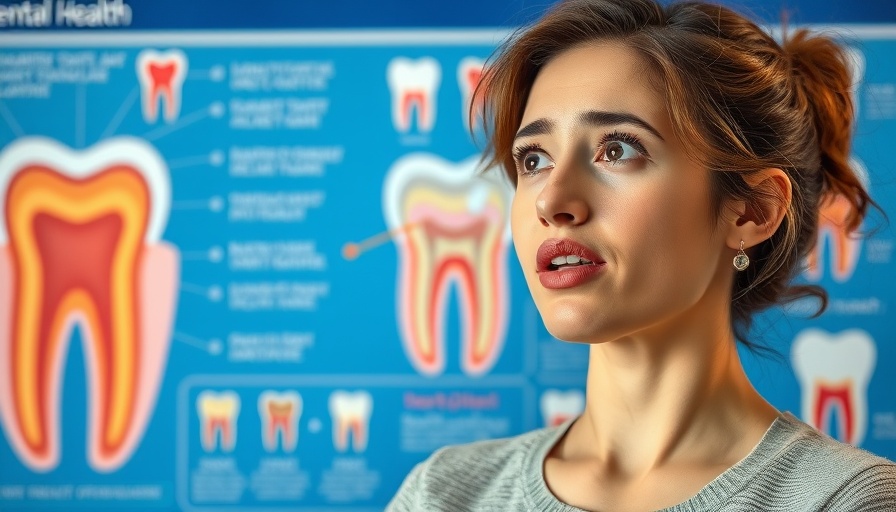
Unlocking the Secrets of Dental Tools: Essential for Oral Hygiene
Maintaining good oral hygiene requires a deep understanding of the tools that dental hygienists use during cleanings. These instruments are designed not only for cleaning teeth but also for checking gum health, indicating potential dental problems, and ensuring your mouth is as healthy as it can be. The importance of knowing these tools lies in the healthy path they pave for our dental care.
In 'Dental Tools Used During a Teeth Cleaning - EXPLAINED!', the discussion dives into essential dental instruments and their importance in maintaining oral health, exploring key insights that sparked deeper analysis on our end.
The Purpose of Each Tool: Your Guide to Dental Hygiene
At the forefront of dental cleaning is the probe, also known as the periodontal measuring tool. Much like a ruler, this instrument allows dental hygienists to measure the space between your gums and teeth. A reading of 1-3 mm signifies healthy gum tissue, while higher numbers can indicate inflammation or periodontal disease. This assessment guides the hygienist in determining whether a basic cleaning is sufficient or if a deeper cleaning, known as scaling and root planing, is needed. The knowledge of how to interpret these numbers helps you understand how you can better manage your dental care.
The Explorer: Detecting Danger Before It Strikes
Another essential instrument is the explorer, used to examine teeth for signs of decay or buildup of tartar. Hygienists and dentists alike utilize this curved tool to feel for any rough areas that might indicate cavities or gum disease. Discovering these potential issues early allows for better cavity prevention and ensures that oral health is maintained.
Understanding Scalers: Keeping Tartar at Bay
Scalers are the sharp tools that hygienists use to scrape away plaque and tartar from the surface of teeth. There are various scalers designed specifically for different parts of the mouth, ensuring that all surfaces of your teeth can be cleaned thoroughly. These instruments can reach the nooks and crannies that might otherwise be missed in a routine cleaning, making them a key player in your dental hygiene routine.
Curettes and Their Specialization
Curettes provide another critical approach to dental cleaning, offering hygienists a different option when dealing with tartar. These instruments don’t have as sharp an edge as scalers, allowing for more precise cleaning, especially around the gum line. The Gracie curette, in particular, can access hard-to-reach areas and is specially angled for effectiveness.
Ultrasonic Scalers: The Power of Technology at Work
Modern technology has brought ultrasonic scalers into the mix, using high-pressure water in combination with ultrasonic vibrations to dispel plaque and tartar. This technology enhances dental cleaning efficiency, leading to better outcomes and healthier gums. Most hygienists use this tool for adult patients due to its efficacy, especially for those with significant tartar buildup.
Finishing Touches: Polishing for Perfection
After removing buildup, polishing is essential for ensuring teeth feel smooth and clean. This step often involves a gritty paste flavored to make the process more pleasant. The outcome? A radiant, fresh smile that reinforces the importance of regular dental checkups.
The Importance of Regular Dental Checkups
To maintain healthy gums and prevent gum disease, understanding the tools in a dental hygienist's arsenal is vital. Regular visits to your dentist not only help prevent dental emergencies but also ensure that your oral care routine is effective. These sessions provide insights into how often you should be flossing, brushing, and monitoring any sensitive teeth or gum issues.
Conclusion: Empower Yourself with Knowledge
Understanding the tools and techniques used in dental visits empowers you to take control of your dental health. From cavity prevention strategies to insights on how to manage sensitive teeth effectively, knowledge of dental tools and practices makes a significant difference in your oral hygiene routine.
If you're interested in taking proactive steps towards better oral health, exploring your dental care options like dental implants, teeth whitening, or braces can be beneficial. Always consult with your dentist about the best strategies tailored to your specific needs.
 Add Row
Add Row  Add
Add 




Write A Comment